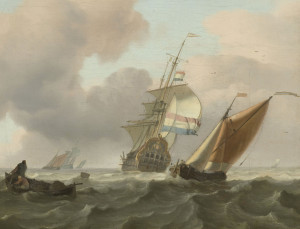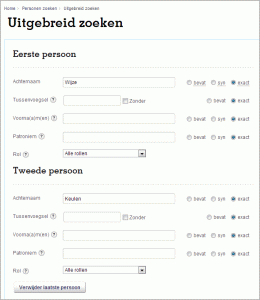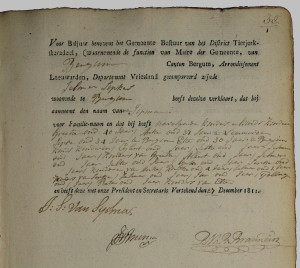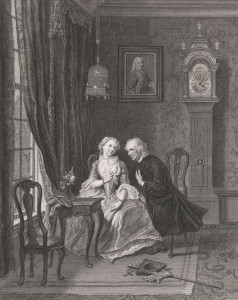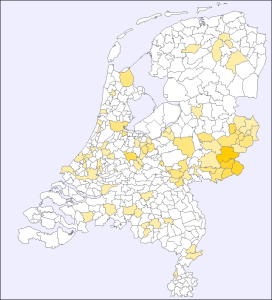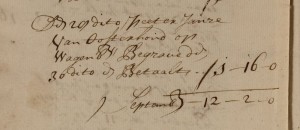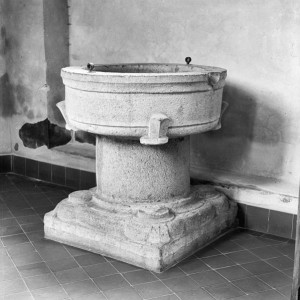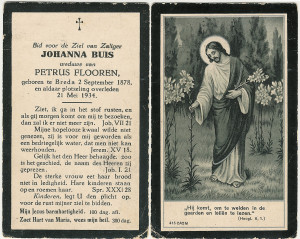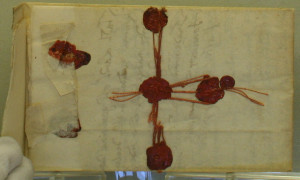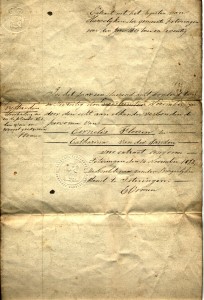Searching for records using Google or Ancestry will only get you so far. You will just find records that have already been indexed and put online. If searching does not give you the records you need to answer your research question, try to think like an archivist to understand what other records may exist. … [Read more...]
Dutch term: Uitgebreid zoeken
The words uitgebreid zoeken mean "advanced search" (literally: elaborate search). You will often find the term on websites with genealogical databases where the "uitgebreid zoeken" link will take you to a search form with more options to formulate your query. Beware that most search engines only find exact matches, so don't fill out too much information. … [Read more...]
Name taking records
The French occupation from 1795-1813 introduced many new types of administration, including the civil registration. To properly record people, it was necessary that they all had a last name. In 1811 and 1813, Napoleon decreed that everybody had to register their last name. After the French occupation ended, the Dutch government decided to keep the obligated last name. In 1825 they required that everybody who had not registered his name yet should do so. You can find information about … [Read more...]
Dutch term: weduwnaar
The word weduwnaar means widower. In most marriage records, even the early ones, the fact that groom is a widower will be mentioned. If you're lucky, the name of the previous spouse is mentioned too, but that has only been required since the civil registration (1811 or slightly earlier). … [Read more...]
Quick tip: surnames database
The Meertens Instituut (Institute) has a database of surnames in the Netherlands where you can search for a name to get a map that shows where people by that name lived in 1947 and 2007. This can be a great way to find out where in the Netherlands your ancestors may have come from, as many names are specific to a certain area. The example shows that the Hoitink name was most common in the eastern part of the Netherlands. This matches my genealogical research, that proved that the family … [Read more...]
Dutch term: begraafboek
A begraafboek is a burial book. Begraafboeken are the primary source of information about deaths before 1811. They can be found at the archives in the capitals of the provinces. Many burial books have been digitized and are available on Familysearch.org. … [Read more...]
Dutch term: Dopen
The Dutch word dopen means baptisms or to baptize. Doopboeken (baptize books) are the main source for birth information prior to the introduction of the civil registration (in 1811 for most of the Netherlands but as early as 1796/1797 for Limburg and Zeeuws-Vlaanderen). … [Read more...]
Source: prayer cards
I vividly remember the first time I visited the Central Bureau for Genealogy in The Hague. I must have been about sixteen years old, and had just started doing genealogy. My mom also became interested and went with me. When we checked the catalog, we found that there was an envelope with prayer cards of people named Flooren, my grandmother's maiden name. Within minutes, we held the prayer card of Petrus Flooren, my three-times-great-grandfather. My mom and I were very excited about this find. … [Read more...]
Dutch term: testament
A testament is a last will. Most people did not have a last will and died intestate. Usually, only wealthier people had a will drawn up. Wills can be found in notarial records or in court records (before 1811 in areas that did not have notaries). … [Read more...]
Dutch term: Trouwboekje
A trouwboekje is a booklet that the bride and groom were issued at the time of their marriage. It lists their names, date and place of marriage and has room to add all of their children. It was referred to often when people needed to prove their identity. Read more about marriage booklets and the implications for your research. … [Read more...]
